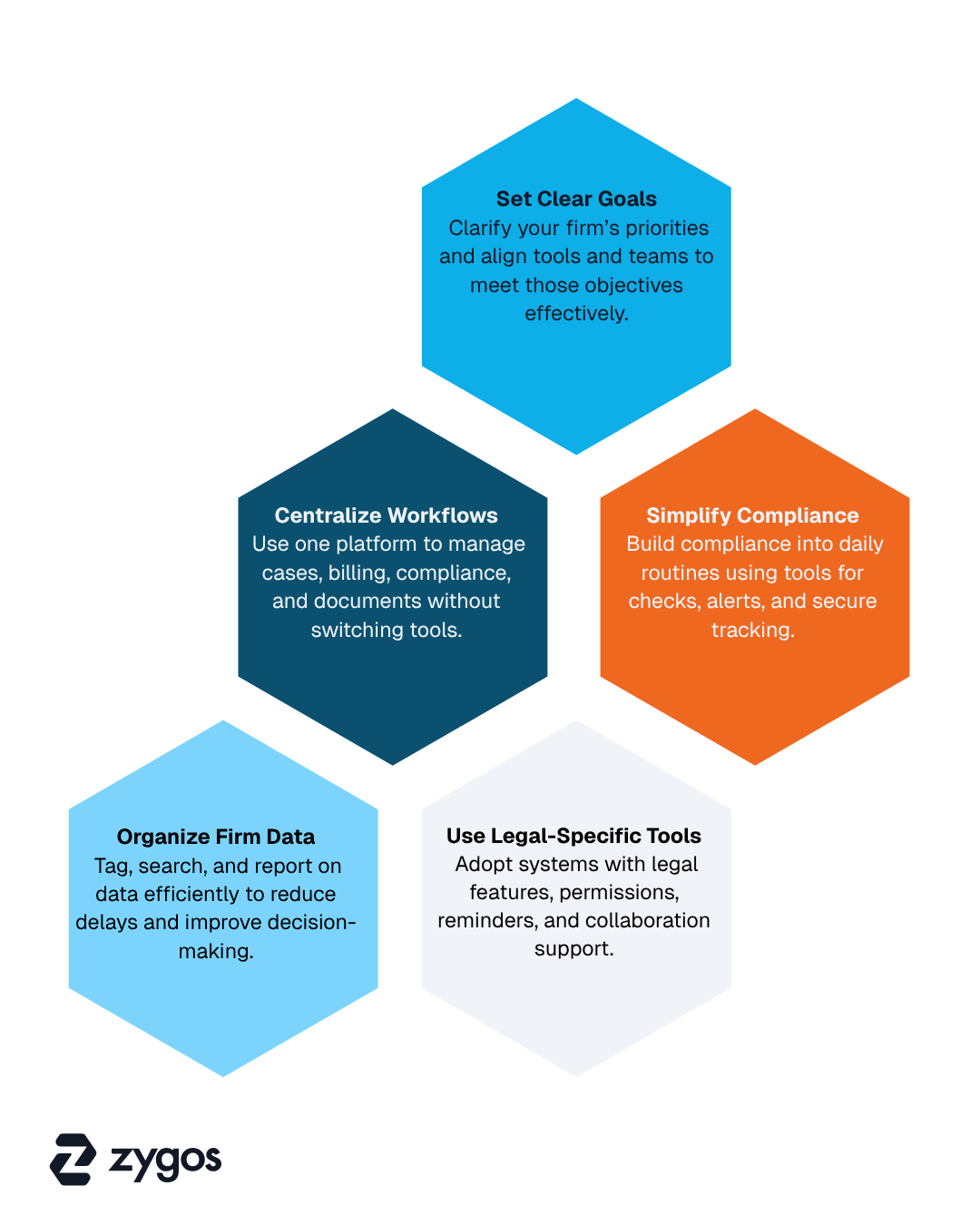Managing a law firm today means more than handling cases or tracking billable hours. From client service to compliance, legal teams face growing demands. To run smoothly and grow in 2025, simplifying daily operations is essential.
This article provides a clear guide to enhancing law firm management effectiveness, drawing on years of experience with legal professionals.

1. Define What Success Means to You
Each firm has different priorities. Start by being clear about what matters most. Are you focused on speed, accuracy, client service, or meeting regulatory needs?
Knowing your goals helps shape how your team works and which tools are the right fit.
2. Keep Everything in One Place
Jumping between tools slows teams down. A single platform that manages:
- Cases and contacts
- Time and billing
- Compliance tasks
- Documents and entities
…keeps your team focused and reduces errors. With everything in one place, it’s easier to see what’s happening across the firm.
3. Make Compliance Part of Daily Work
When compliance is built into your regular workflows, it becomes simpler to manage. Risk checks, document tracking, and reports should feel natural, not disruptive.
Use tools that support:
- Risk scoring
- Document alerts
- PEP and sanctions screening
- Central MLCO tracking
This approach helps your firm stay on track and ready for audits.
4. Turn Your Data into Useful Information
Law firms manage a lot of information. Organizing it helps you work more efficiently and with greater confidence.
Make sure your systems allow you to:
- Tag and search documents
- Keep clear records
- Generate reports easily
Good data handling means fewer delays and better decisions.
5. Equip Your Team with the Right Tools
The best systems are the ones people use. Your team needs tools that support collaboration, remote access, task tracking, and document sharing.
Look for features like:
- User roles and permissions
- Automatic reminders
- Office app integration
This helps your team stay aligned, whether working on-site or remotely.
6. Plan for Growth from the Start
Your firm may expand, offer new services, or adjust to new rules. Your tools should be flexible enough to keep up.
Choose systems that support:
- Different regions or business types
- Multiple currencies and companies
- Scalable user access
- Easy connections with other platforms
A flexible setup lets you adapt without disruption.
7. Work with Experts Who Understand Law Firms
Legal work has specific needs. Choose partners who understand how law firms operate, from client billing to regulatory reporting.
A good partner doesn’t just sell software. They offer advice, training, and support that helps your firm succeed.
Final Thoughts
Better law firm management isn’t about more tools. It’s about clear goals, effective systems, and the right support. With tools built for legal professionals, your team can stay focused on clients and work with confidence.
At Zygos, we help firms simplify their operations and stay ready for what’s next. Want to learn more?



